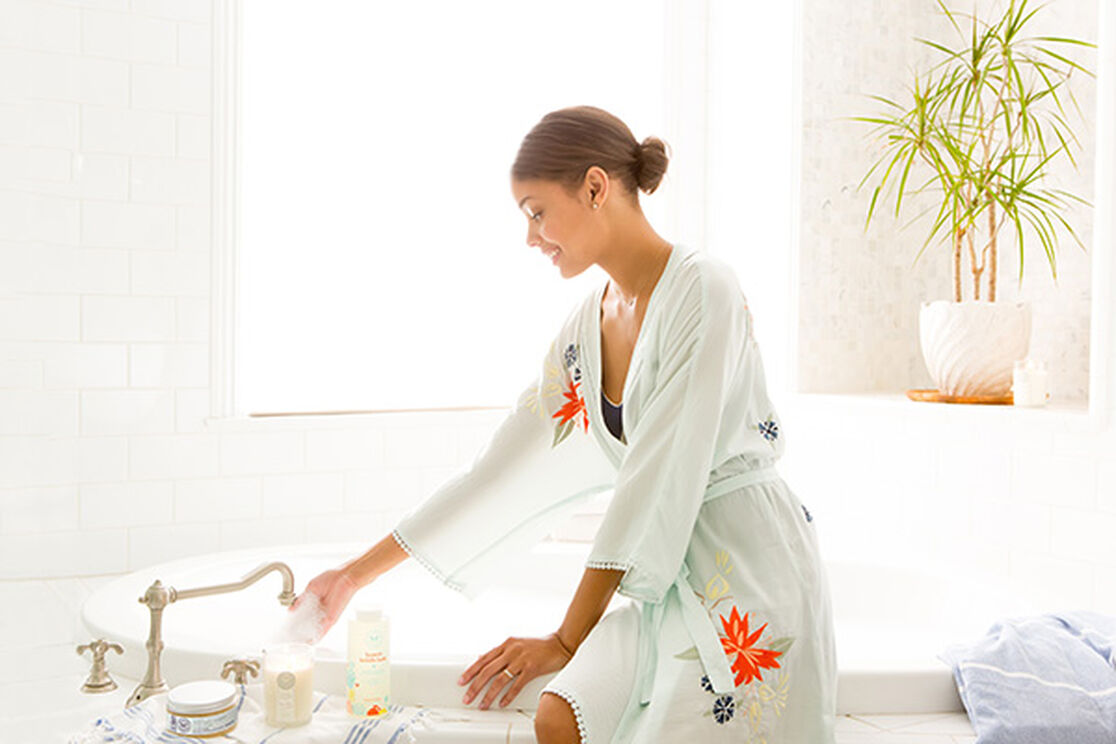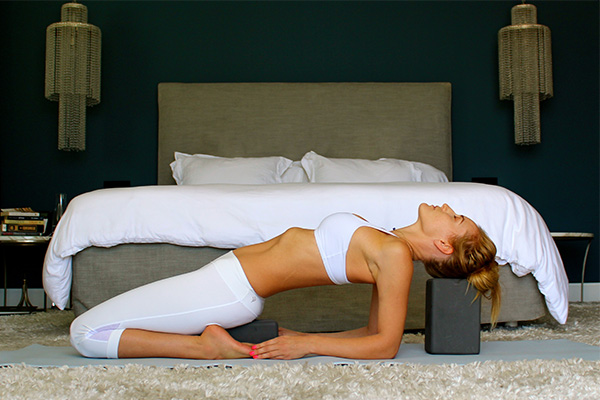Aunt Flo. Shark Week. The Crimson Tide. There are endless euphemisms for our monthly cycle and while they may invoke a laugh or two, none can change the fact that periods aren’t fun. But, you don’t have to let them cramp your style. Here are our top tips for making that “time of the month” a bit more manageable.
5 Ways to Cut the Cramps
1. Find your Om. It sounds simple, but we’re serious — staying active by taking up yoga will help ease your monthly aches, so try grabbing your mat instead of the meds. We’ve got all the right moves for you here!
2. Turn up the heat. Grab a heating pad or hot water bottle. The soothing warmth will help relax your muscles and relieve menstrual pain. In fact, one study found that topical heat may be just as effective as ibuprofen when it comes to cramps (a).
3. Chill out. Studies have found that when you’re stressed out, you’re more likely to experience cramps (b). So draw yourself a bubble bath and kick back. (Maybe even light a candle while you're at it!)
4. Eat your fruits and veggies. As if you needed another reason to get more greens — it’s been shown that a higher intake of fruits and veggies reduces your risk of cramps (b). Chips and chocolate can sound extra appealing during this time, but go for the carrots and hummus instead.
5. Hydrate, hydrate, hydrate. Drinking water is vital for your overall health, but especially when you’re on your period. Check out our 8 ways to up your water intake, then grab a glass.
Periods will always be a part of life, but we hope that these simple tips might make the whole process a bit more pleasant! You’ve got enough on your plate as it is.
References:
- Proctor, M. L., & Farquhar, C. M. (2007). Dysmenorrhoea. BMJ Clinical Evidence, 2007, 0813.
- Hong, J., Jones, M., Mishra, G. (2014) The Prevalence and Risk Factors of Dysmenorrhea. Epidemiologic Reviews. 36, 104-113.
This post is solely for informational purposes. It is not intended nor implied to be a substitute for medical advice. Before undertaking any course of treatment or dietary and/or health changes, you should seek the advice of your physician or other health care provider.
We aim to provide you with the most honest and credible information possible. This article was reviewed for accuracy by The Honest Team and was written based on sources that are linked at the bottom of the article.
blog_review_statement




